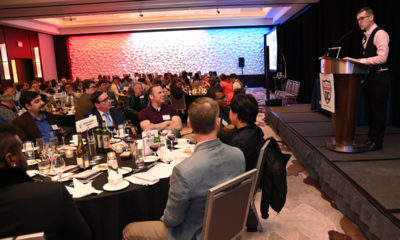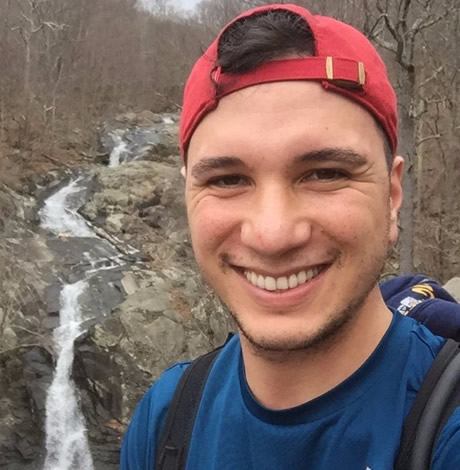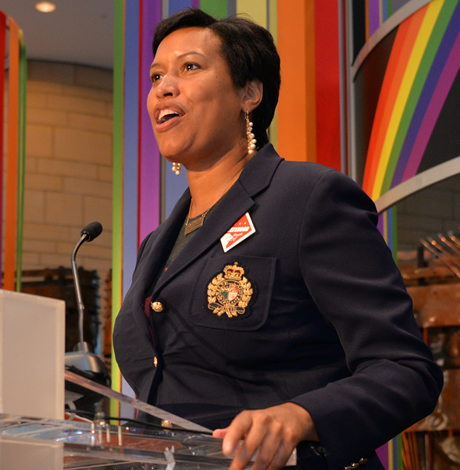Obituary
Co-founder of D.C. LGBTQ Adventuring group Warren Potas dies at 73
Avid outdoorsman organized gay hiking, canoeing, bicycling trips beginning in 1979
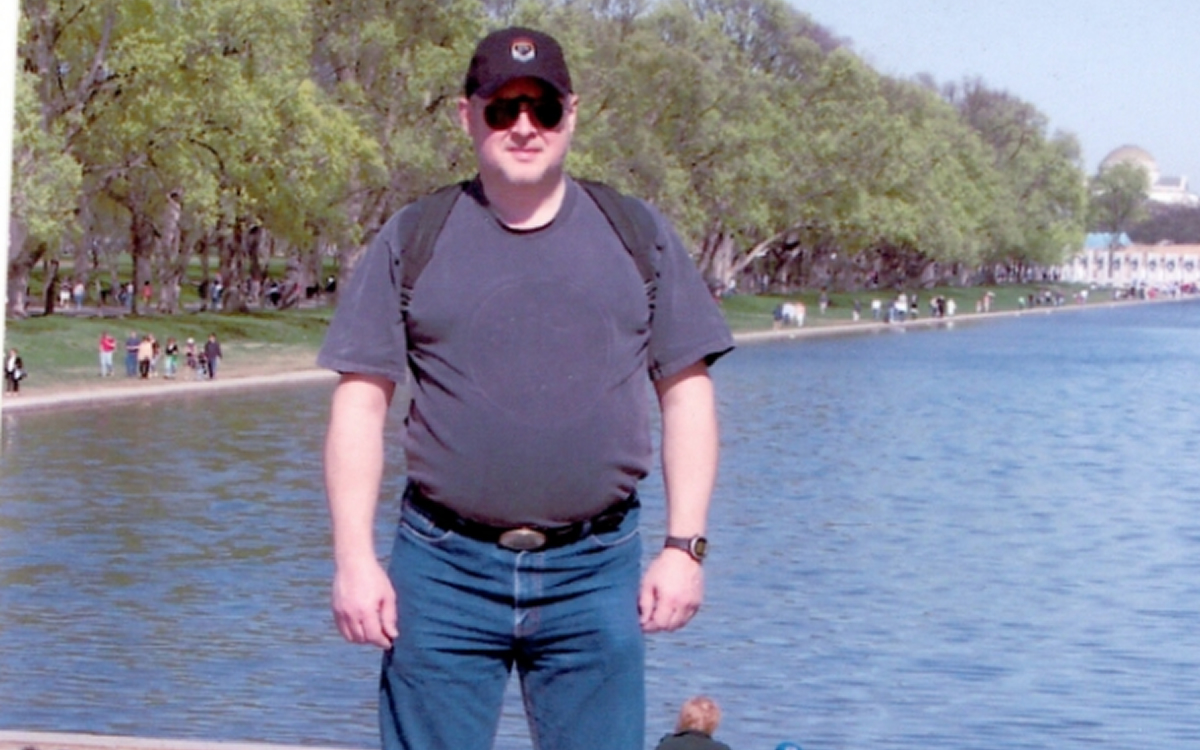
Warren Potas, a D.C. area-based computer engineer who designed mainframe computer software for some of the nation’s leading tech companies, including IBM and Unisys, and the co-founder in 1979 of D.C.’s then gay and lesbian wilderness and outdoor group called Adventuring died on Sept. 5. He was 73.
The cause of death was not disclosed by the Budd Funeral Home of Woodbury, N.J., which organized funeral arrangements and released a detailed write-up on Potas’s life that it says Potas himself prepared.
Potas, who was retired at the time of his passing, had divided his time in recent years between D.C. and his hometown of Wenonah, N.J., which is close to Philadelphia, according to Jennifer Budd, the funeral home’s director.
“Warren regarded wilderness/outdoors as the touchstone of his spirit,” the write-up released by the funeral home says. “Additionally, he enjoyed interacting with people, savoring insights that come from the melding of experience, intuition and reasoning, celebrating the joys of the senses, and appreciating and learning from the world of nature,” the write-up says.
It says Potas, who referred to himself as Adventure Man, received his Bachelor of Science and Master of Science degrees with a major in computer science and minor in economics magna cum laude from Brown University in Providence, R.I. It says he completed his master’s degree in 1971.
“Over time, the bulk of his earnings were derived from mainframe computer software design and development stints at companies including IBM, Unisys, EDS, Calvert Mutual Fund Group, Systems and Applied Science Corporation, and U.S. government agencies, including Naval Research Laboratory, Indian Health Service, and National Institute of Mental Health,” the write-up says.
“He enjoyed applying a creative, design-oriented approach to problem-solving and was eager to encourage the talent of others,” it says.
The write-up says that an interest in the world of finance, including the stock market, began during Potas’s early teens and continued during his years in college and later years.
“He spent an aggregate handful of years in the ‘70s and ‘80s trading futures markets with substantial success, though failing to break into large fortune,” the write-up says.
It says one of his early and most memorable outdoor endeavors took place in 1974
In a “late winter cross-country skiing and backpack trek through Yellowstone Park from the South Entrance to the West Entrance.”
The write-up says other major wilderness outings included “bicycle-packing (the Natchez Trace ’75), a month long 1,200-mile ride through the highlands and island of Northwestern Scotland (’76), the Canadian Rockies (’79), and river activities ranging from canoeing the quiet intimate streams of the New Jersey Pine Barrens to operating rafts through major white water on the Salmon (Middle Fork and Main), various stretches of the Green River and the California Sierra rivers.”
The write-up says Potas regarded his co-founding of the D.C. Adventuring group and its ongoing success as his greatest lifetime accomplishment.
D.C. area resident Pete Kostik, the other co-founder of the Adventuring group, noted that the group “is still going strong” and celebrated its 40th anniversary in 2019. Kostik said Potas told him he would not be able to attend an event celebrating the 40th anniversary of the group because he was at his family residence in New Jersey caring for his ailing mother, who died one year later.
Kostik said at least for Adventuring’s first 10 years, Potas played an active role in helping to organize trips to various locations both locally and across the country.
“Before long the group narrowed its focus to outdoor activity such as hiking, bicycling, canoeing, white water rafting, and the like,” Kostik said. Under Potas’s leadership, the group arranged for trip leaders to organize what Kostik called “elaborate” trips. “There was one down the Grand Canyon. There were bicycling trips out west. And ones closer to home and in other states,” he said.
Kostik said it was Potas’s vision, along with his, during the group’s early years that it would broaden the scope of places for gay people to meet beyond that of the gay bars. “It really filled a need at the time we started,” Kostik said.
The write-up on Potas says he became involved in many other local LGBTQ groups both around the time he helped found the Adventuring group and in later years. Among them were Chesapeake Bay Bears, Lambda Soleil, Four Seasons Garden Club, Ushers, Prodigay, and SigMa.
“From 1979-1982, Warren helped launch and sustain the first independent gay community center in D.C. (GCC/DC) as both a volunteer and board member,” the write-up says.
Funeral director Jennifer Budd said Warren Potas was predeceased by his parents Anthony and Blanche Potas. She said he was an only child. The write-up says funeral services were to be private. There was no suggested organization to support with a contribution in lieu of flowers.
But the write-up on Potas’ life concludes by saying he was a “fiercely committed card-carrying supporter of the American Civil Liberties Union.”
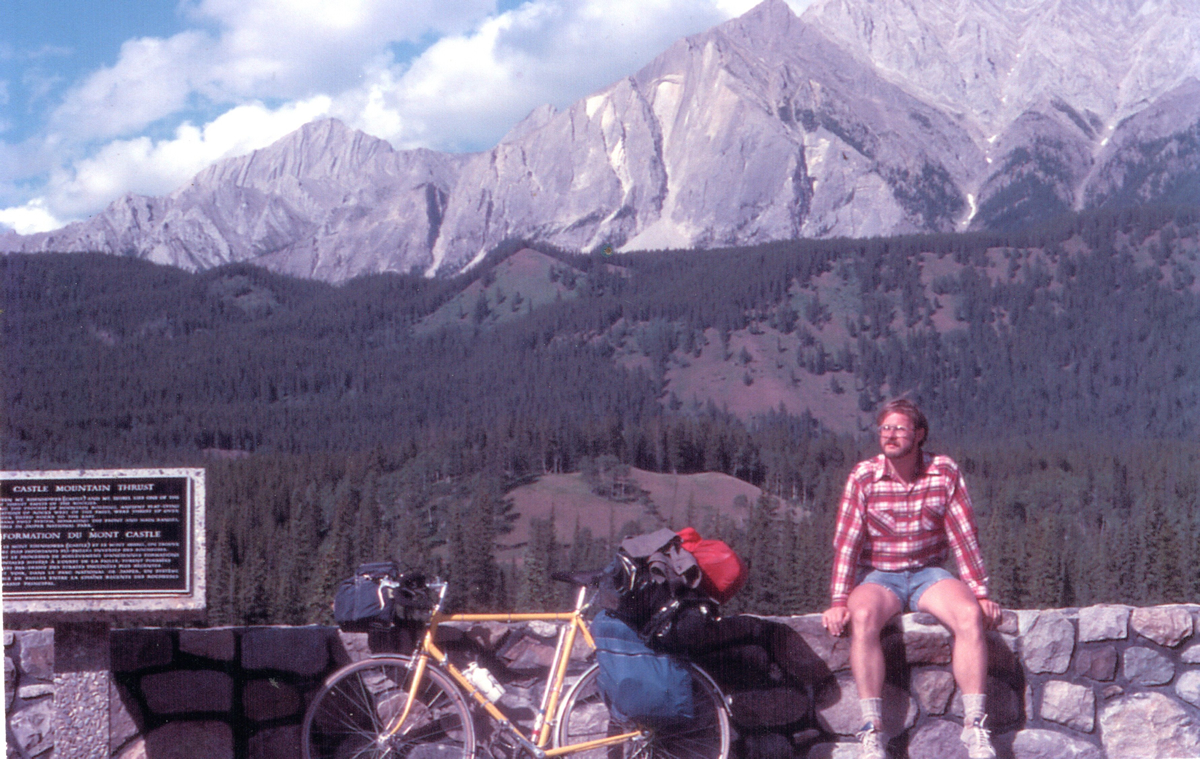
Obituary
Local attorney, LGBTQ rights advocate Dale Sanders dies at 75
Acclaimed lawyer credited with advancing legal rights for people with HIV/AIDS
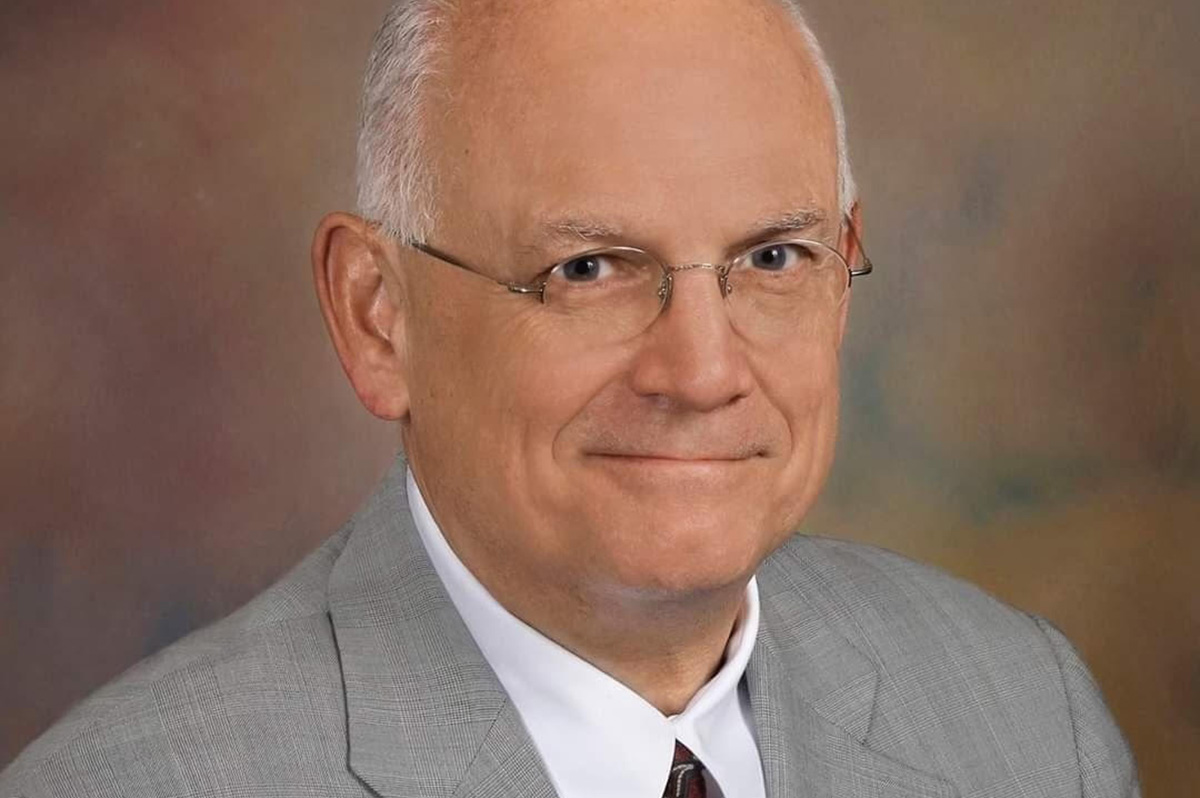
Dale Edwin Sanders, an attorney who practiced law in D.C. and Northern Virginia for more than 40 years and is credited with playing a key role in providing legal services for people living with HIV/AIDS beginning in the early 1980s, died April 10 at the age of 75.
His brother, Wade Sanders, said the cause of death was a heart attack that occurred at Johns Hopkins Hospital in Baltimore shortly after he had back surgery.
Wade Sanders described his brother as a “trial lawyer, passionate criminal defense, and civil litigator for human rights” for close to 50 years, with some of his work focused on “civil law, notably gay-related insurance discrimination during the AIDS epidemic.”
He called his brother “a zealous advocate for the oppressed, his clients, and his personal convictions.”
Born in Arlington, Va., and raised in McLean, Va., Dale Sanders graduated from Langley High School in McLean and received his bachelor’s degree from the University of Virginia, his brother said. He received his law degree from D.C.’s American University Washington College of Law and began his law practice in 1976 in Old Town, Alexandria, Wade Sanders said.
Amy Nelson, director of Legal Services for D.C. ‘s Whitman-Walker Health, said Sanders became one of Whitman-Walker’s original volunteer pro-bono attorneys in the 1980s.
“Dale was a beloved part of the legal services program and our medical-legal partnership for nearly 40 years,” Nelson said. “Dale was one of the clinic’s first volunteer attorneys at Whitman-Walker’s weekly, legal walk-in clinic offering free counseling to clients about their legal rights in the face of HIV/AIDS and LGBT discrimination from employers, landlords, medical providers, and insurance companies,” according to Nelson.
Nelson added, “Dale represented dozens of people impacted by the ignorance and prejudice attendant to an HIV/AIDS diagnosis, and his litigation wins were instrumental in advancing the legal rights of persons living with HIV/AIDS.”
Sanders’s most recent case on behalf of Whitman-Walker took place in 2023 in support of a transgender woman in Virginia who faced discrimination from her employer and health insurer, Nelson said.
In 1989, Whitman-Walker presented Sanders with its Gene Frey Award for Volunteer Service, and in 1994 presented him with its Founders Award for Pro Bono Legal Services, Nelson told the Blade. She said in 2024, Whitman-Walker re-named its annual Going the Extra Mile Pro Bono Award as the Dale Sanders Award for Pro Bono Excellence.
“Dale’s legacy helped to shape HIV/AIDS law, and his fierce commitment to justice will live on at Whitman-Walker Health,” Nelson said in a statement. “We will miss him dearly.”
Daniel Bruner, who served as Whitman-Walker’s legal services director prior to Amy Nelson taking that position, said Sanders played a role in shaping his own legal skills and knowledge.
“Dale was one of my earliest legal models among local, and national, advocates for people living with HIV and LGBT people,” Bruner told the Blade. “He was a fierce, persistent advocate for his clients and for the community,” Bruner said, adding, “He won key victories in several cases where employees’ or health care patients’ privacy had been egregiously violated. I certainly will never forget him.”
Wade Sanders said his brother was also an avid bridge player, saying he played competitively. “He earned the rank of Ruby Life Master, a pretty big deal in the bridge world,” Wade Sanders said.
Dale Sanders is survived by his husband, Christian Samonte; his sister, Joyce Sanders of York, S.C.; his brother Wade Sanders of West Jefferson, N.C.; and his beloved dogs Langley and Abigail, his brother said in a statement.
A memorial service for Dale Sanders organized by the Sanders family and the LGBTQ Catholic group Dignity Washington will be held Saturday, May 10, at 1 p.m. at St. Margaret’s Episcopal Church at 1830 Connecticut Ave., N.W. in D.C., a Dignity Washington spokesperson said.
Obituary
Nanette Kazaoka, an unlikely AIDS activist, dies at 83
Member of ACT-UP, longtime social justice advocate
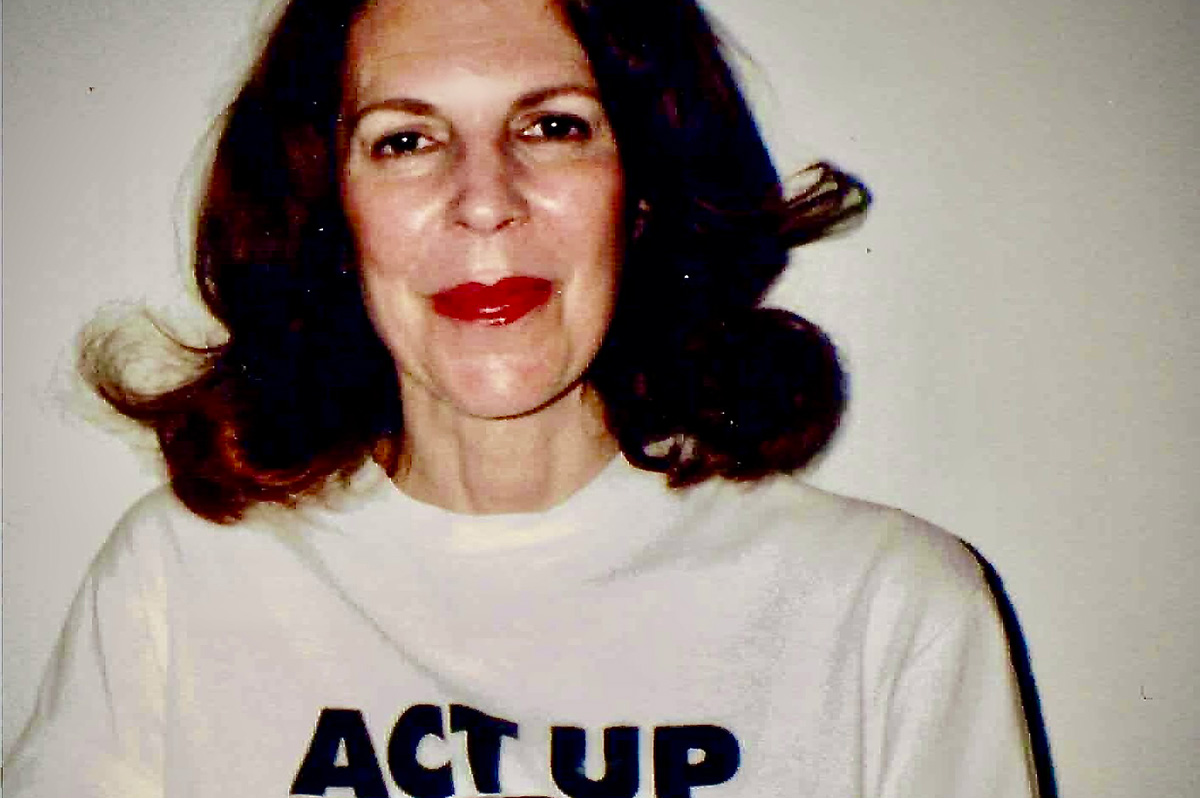
Nanette Kazaoka, a well-known figure in the fight for HIV/AIDS awareness and the rights of marginalized communities, passed away on Oct. 2 at her home in New York City. She was 83. The cause of death was complications from vascular dementia and Alzheimer’s disease, according to a statement from her daughter Kelly Kochendorfer.
Kazaoka was an advocate for justice, particularly in the early days of the AIDS crisis, when she became a member of the AIDS Coalition to Unleash Power, or ACT-Up. She is perhaps best remembered for her participation in a 2004 protest in front of Madison Square Garden during the Republican National Convention, when she and 11 fellow activists staged a dramatic naked demonstration, demanding debt cancellation for impoverished countries, according to a statement from the family.
“Bush, Stop AIDS. Drop the Debt Now!” they chanted, with slogans stenciled in black paint on their bodies. The bold protest drew national attention and underscored the urgency of global debt relief as a key element in the fight against AIDS.
She was born Nanette Natalina Bottinelli on June 12, 1941, in New York City. Her father, Angelo, worked as a waiter at the St. Regis Hotel, while her mother, Betty McComb, was a part-time burlesque dancer.
She married her first husband, Fred Kochendorfer, in 1963, and they had two children together, Kim Skrobe and Kelly, both of whom survive her.
Kazaoka’s journey to Fire Island marked a transformative period in her life. Kochendorfer wanted to live there, and so they began renting in 1967. Kazaoka then made a bold decision that would shape her future: She left her husband for another man and began living on Fire Island in 1968-1969, with the children attending school in Ocean Beach, according to the family’s statement.
This period coincided with the early days of the gay rights movement, as Fire Island was emerging as a hub for LGBTQ culture. Her experiences during these years contributed to the strong sense of activism and solidarity that would later define her role in ACT-UP and the broader fight for LGBTQ rights.
Kazaoka’s second husband, Katsushiga “Kats” Kazaoka, a Japanese-American psychologist who had been interred during World War II, died of cancer in 1984, pushing her to enter the workforce as a receptionist while studying occupational therapy at Downstate Medical Center. By 1990, she had earned her degree and sought work with AIDS patients.
In 1988, a close friend introduced her to ACT-UP, sparking the start of her full-time dedication to AIDS activism, the family said. Kazaoka became known for her passionate, unrelenting activism, whether protesting at City Hall or challenging anti-LGBTQ policies at St. Luke’s Hospital.
Kazaoka’s activism spanned 35 years, making her a beloved and respected figure within ACT-UP and beyond, the family noted. She was featured in Sarah Schulman’s “Let the Record Show: A Political History of ACT-Up New York, 1987-1993” as well as “Act-Up Oral History, No. 162,” a digital history. She was the cover photo of “Fag Hags, Divas and Moms: The Legacy of Straight Women in the AIDS Community,” and was included in The New York Times T Living Magazine story, “LEGENDS PIONEERS AND SURVIVORS.
Her dedication to science continued even after her passing: She donated her brain to the Mount Sinai NIH Brain and Tissue Repository for research to advance the understanding of the human brain health and disease to help end dementia, the family said.
Along with her daughters, Kazaoka is survived by her son-in-law John Skrobe, granddaughter Stella Skrobe and daughter-in-law Christine Arax, all of New York. She and her third husband, Paul Haskell, divorced in 2000.
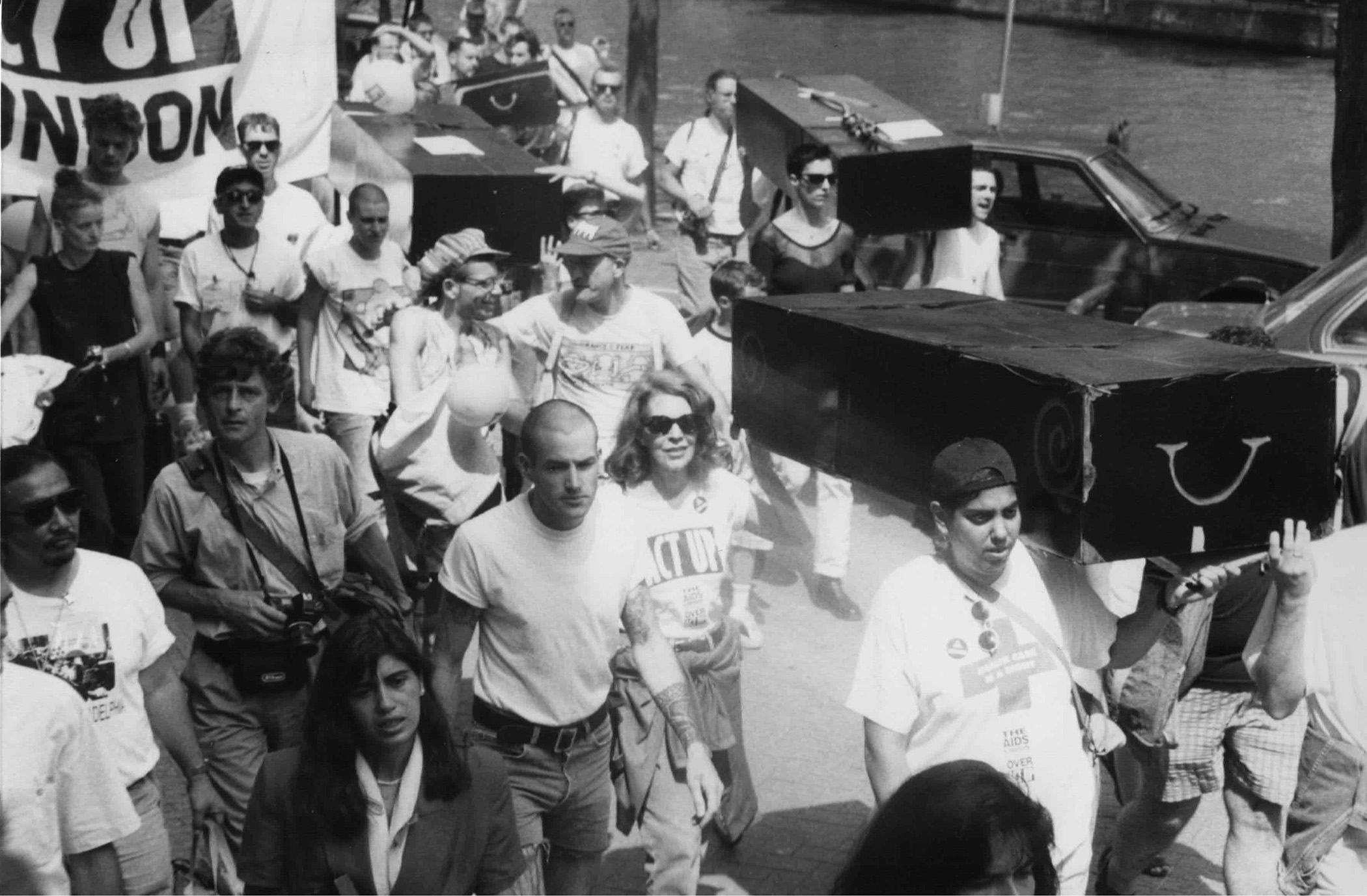
Local
D.C. LGBTQ rights advocate Jeri Hughes dies at 73
‘Force of nature’ credited with pro-trans policy at city jail
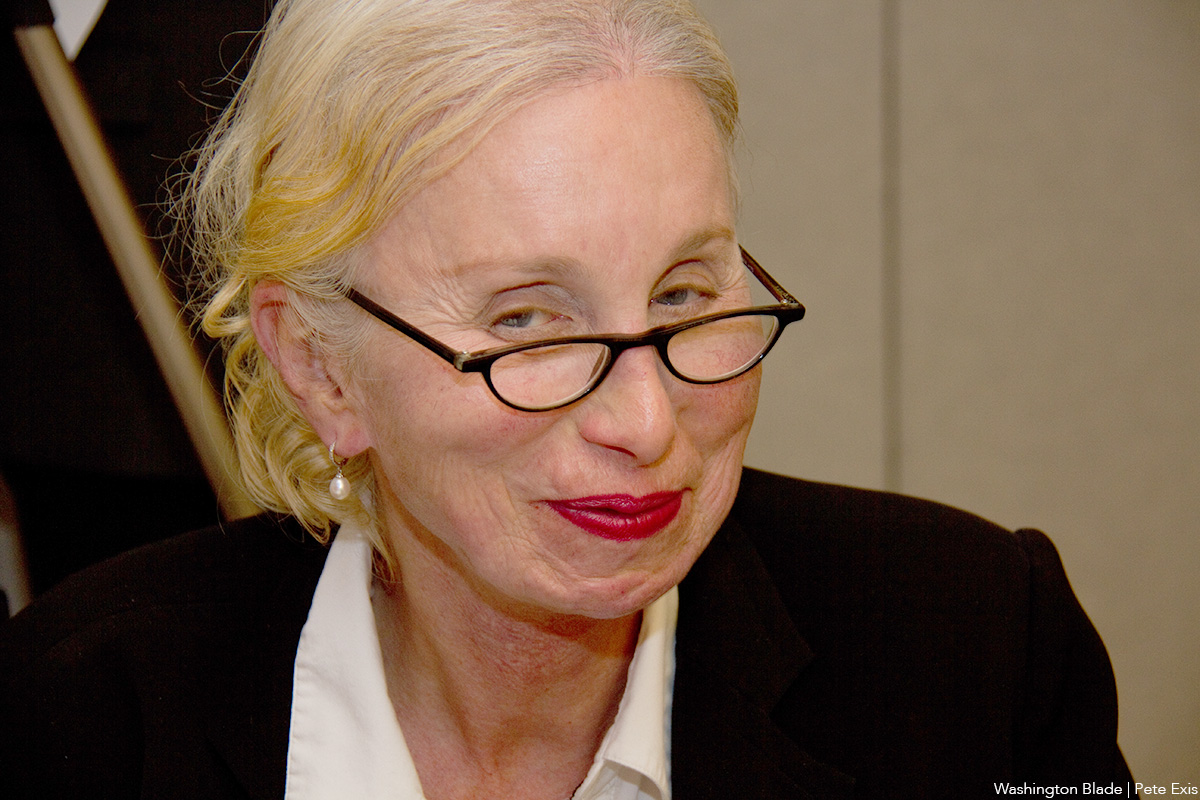
Jeri Hughes, a longtime D.C. transgender rights advocate who has worked closely with activists in support of the local LGBTQ community, died March 18 at her home after a seven-year battle with lung cancer. She was 73.
Hughes, who has worked for the past 11 years at the D.C. Department of Employment Services, most recently as a Workforce Development Specialist, became involved in local LGBTQ rights and transgender rights endeavors since she moved to D.C. around 2005.
Among other endeavors, Hughes, along with D.C. transgender rights advocate Earline Budd, has served for more than a decade on the D.C. Department of Corrections’ Transgender Housing and Transgender Advisory committees.
Budd this week said Hughes played an important role in ensuring that Department of Corrections officials continue to follow a 2009 policy of allowing transgender inmates to choose whether to be placed in the men’s or the women’s housing units at the D.C. jail.
“In her toughness and determination, Jeri was a force of nature,” said Rick Rosendall, former president of the D.C. Gay and Lesbian Activists Alliance. “She pressed the D.C. Department of Corrections for more humane and respectful treatment of transgender inmates,” Rosendall said.
“She pressed the D.C. government to set an example by hiring more trans people,” according to Rosendall, who added that Hughes interacted with D.C. police officials, including former D.C. Police Chief Peter Newsham, to push for respectful treatment of trans people by the police.
Hughes’s LinkedIn page shows that prior to working at the D.C. Department of Employment Services she served as housing coordinator for a local social services organization called T.H.E. Inc., where, among other things, she “monitored and mentored a diverse population of LGBT youth.”
Her LinkedIn page shows she also worked from June 2009 to May 2010 as an administrative assistant at the D.C. Anacostia Watershed Society.
Hughes’s brother, Lou Hughes, who said the Hughes family is originally from Ohio, told the Washington Blade Jeri Hughes served in the U.S. Navy after high school as a torpedo operator in a submarine in the South Pacific. He said a short time later Jeri Hughes moved to New York City, where she operated a company that provided commercial laundry service to restaurants and hospitals.
Lou Hughes said his sister Jeri moved to D.C. around 2005 and initially lived with him and his wife in a basement apartment in their house before moving to her own apartment in Northwest D.C. where she remained until her passing.
He said it was around 2005 that his sister informed her family that she planned to transition as a transgender woman at the age of 54. “And our family fully supported her decision, helped her finance the various surgeries,” Lou Hughes said. “And once she went through the transition it was like she was fully reborn.”
“And that’s why all these negative comments about transgender people right now – it’s very hurtful to our family because she was really the classic transgender person who was really simply born in the wrong body and gave our entire family a real sensitivity and understanding of what that meant,” Lou Hughes said.
Denise Leclair, one of Jeri Hughes’s closest friends and former roommate, said among Jeri Hughes’s many interests was boating. Leclair said Hughes persuaded her to join Hughes in purchasing a 45-foot sailboat in 2019, shortly after Hughes was diagnosed with lung cancer.
“We spent the next two months getting it fixed up and we started sailing,” Leclair recalls. “And we did quite a bit of sailing, so she really put her heart and soul into restoring this boat.”
Leclair said the boat was docked in a harbor in Deale, Md., just south of Annapolis. She said up until a few months ago, after her cancer prevented her from working full-time, Hughes spent most of her time living on the boat until her illness forced her to return to her D.C. apartment.
“My Dearest Sister Jeri, born April 30, 1951, left our restless Earth in the early morning of March 18, 2025, succumbing to the lung cancer which she battled against so bravely for seven years,” Lou Hughes says in a statement. “As we all know, Jeri was a person of high intellect, incredible energy and fearless in the face of adversity,” her brother wrote.
“Whether through acts of quiet charity, tireless advocacy, or simply offering a listening ear, Jeri made it a mission to uplift, support, and care for every person she encountered,” his statement says. “Her life was a testament to empathy in action, leaving a lasting legacy of love, hope, and selflessness that will continue to inspire all who knew her.”
In addition to her many friends and colleagues in D.C., Jeri Hughes is survived by her brother, Lou Hughes; sister-In-law Candice Hughes; daughter, Casey Martin; son-in-law Wally Martin; grandson Liam Martin; granddaughter, Mirella Martin; niece, Brittany Hughes; and nephew Klaus Meierdiercks.
A memorial service and celebration of life for Jeri Hughes is scheduled to be held May 10 at D.C.’s Metropolitan Community Church at 1 p.m., according to Earline Budd.
-

 District of Columbia5 days ago
District of Columbia5 days agoFinal push to raise funds, fill D.C. hotels as WorldPride nears
-

 El Salvador3 days ago
El Salvador3 days agoGay Venezuelan makeup artist remains in El Salvador mega prison
-

 District of Columbia4 days ago
District of Columbia4 days agoReenactment of 1965 gay rights protest at White House set for April 17
-

 Maryland5 days ago
Maryland5 days agoFreeState Justice: Transgender activist ‘hijacked’ Moore’s Transgender Day of Visibility event

